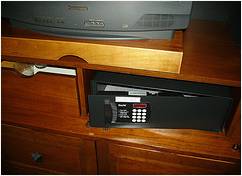
Identity theft is a serious crime that can wreak havoc on your finances and personal life. It occurs when someone steals your personal information, such as your Social Security number or credit card details, to commit fraud or other crimes in your name. In this article, we will discuss some signs that your identity may have been stolen and provide tips on how to protect your finances from falling victim to this increasingly common crime.
Types of Identity Theft
There are several types of identity theft, including:
- Financial Identity Theft: This is the most common type of identity theft. It occurs when someone uses your personal information to obtain credit, loans, or other financial benefits.
- Identity Cloning: This is a type of identity theft where someone uses your personal information to create a new identity for themselves.
- Medical Identity Theft: This is a type of identity theft where someone uses your personal information to obtain medical care or prescription drugs.
- Child Identity Theft: This is a type of identity theft where someone uses a child’s personal information to obtain credit or other benefits.
Unexplained Charges
One of the most obvious signs that your identity has been stolen is seeing unexplained charges on your bank statements or credit card bills. If you notice unfamiliar transactions, it’s important to act quickly to report the fraud and dispute the charges with your bank or financial institution.
Missing Mail or Emails
Another sign of identity theft is missing mail or emails related to financial accounts or sensitive information. If you stop receiving statements, notifications, or other correspondence from banks, creditors, or government agencies without explanation, it could be a red flag that someone has changed the contact information associated with your accounts.
Errors on Your Credit Report
Checking your credit report regularly is essential for detecting signs of identity theft. Errors such as unfamiliar accounts, incorrect personal information, or fraudulent inquiries can indicate that someone has used your identity to open new lines of credit or apply for loans without your knowledge.
Receiving Collection Calls for Debts You Don’t Owe
If debt collectors start contacting you about unpaid bills that you don’t recognize, it could be a sign that someone has taken out loans or racked up charges using your identity. Don’t ignore these calls — request validation of the debt and report any fraudulent activity to the authorities.
Social Security Number Misuse
Your Social Security number is a valuable piece of information that identity thieves often target for fraudulent purposes. If you receive notices from the IRS about income reported under a different name or find discrepancies in your tax filings, it’s crucial to take immediate action to prevent further damage to your finances.
How To Protect Your Finances
- Monitor Your Accounts Regularly: Check your bank statements, credit card bills, and credit reports frequently for any signs of suspicious activity.
- Secure Your Personal Information: Keep sensitive documents like Social Security cards and passports in a safe place and avoid sharing personal details online.
- Use Strong Passwords and Enable Two-Factor Authentication: Protect your online accounts with complex passwords and an extra layer of security.
- Freeze Your Credit Reports: Consider placing a freeze on your credit reports to prevent unauthorized access to your credit history.
- Report Suspected Identity Theft Immediately: If you believe that your identity has been stolen, contact the authorities and relevant financial institutions as soon as possible.
- Consider getting identity theft protection from one of the major protection agencies like LifeLock.
Equifax (one of the big 3 credit reporting agencies) says, “You can make it more difficult for identity thieves to open accounts in your name by locking your Equifax credit report with Lock & AlertTM, or placing a security freeze on your Equifax, Experian, and TransUnion credit reports.”
Seek Assistance from a Fraud Defense Lawyer
In instances where identity theft has progressed to legal complications or if you’re wrongly accused of fraud due to stolen identity issues, seeking professional help from a fraud defense lawyer is crucial. These legal experts specialize in navigating the complex landscape of financial fraud and identity theft, advocating on your behalf to resolve disputes and clear your name. A fraud defense lawyer will offer guidance on how to effectively communicate with financial institutions and law enforcement, ensure your rights are protected throughout the process, and work to rectify the damages done to your financial reputation. It’s essential to choose an attorney with a track record of success in cases similar to yours, ensuring they have the expertise needed to handle the specific challenges of identity theft and fraud defense.
Identity theft can have devastating consequences for victims who fall prey to this crime. By staying vigilant for signs of unauthorized activity on our accounts and taking proactive steps to protect our personal information, we can reduce the risk of becoming victims of identity theft and safeguard our finances against potential fraudsters. Remember, prevention is key when it comes to protecting yourself from identity theft — so stay informed and take action if you suspect that something is amiss with your financial accounts.
You Might Also Like:
- Be Sure Your Family is Secure Physically and Financially
- Internet Safety: Protect Yourself Online
- Simple Tips to Keep Your Information Safe
- How to Hide Cash and Valuables at Home
Image created by Meta AI.



